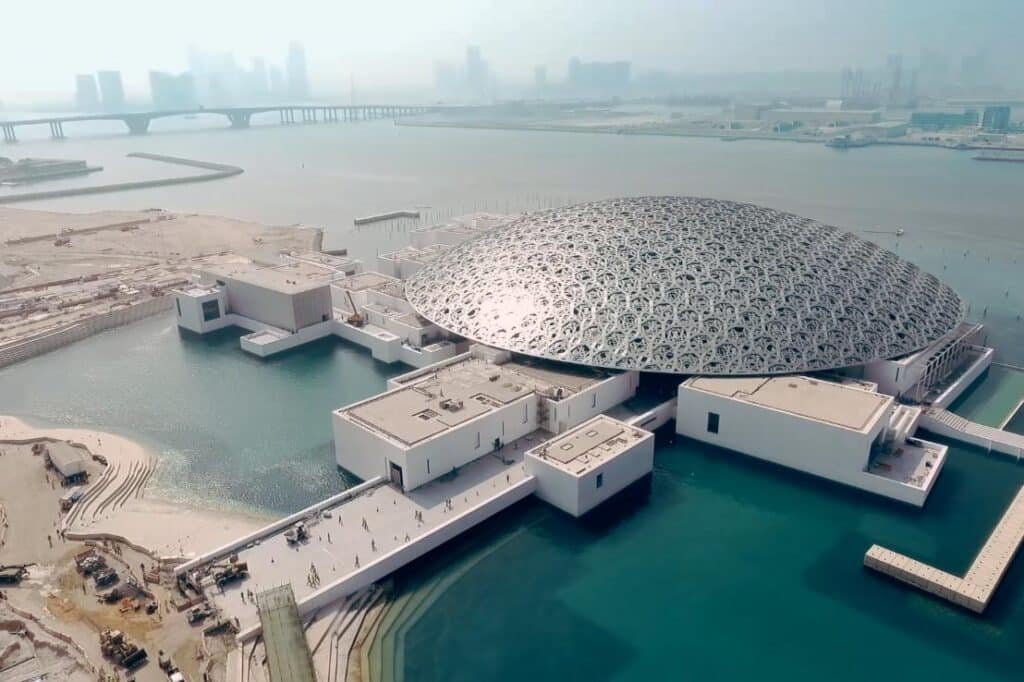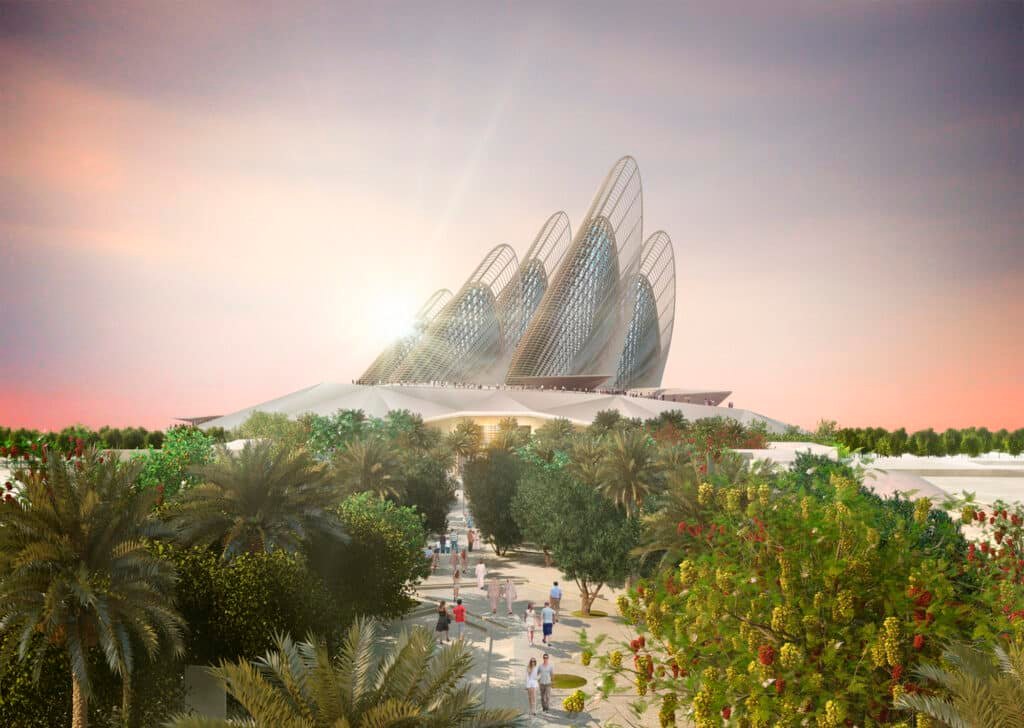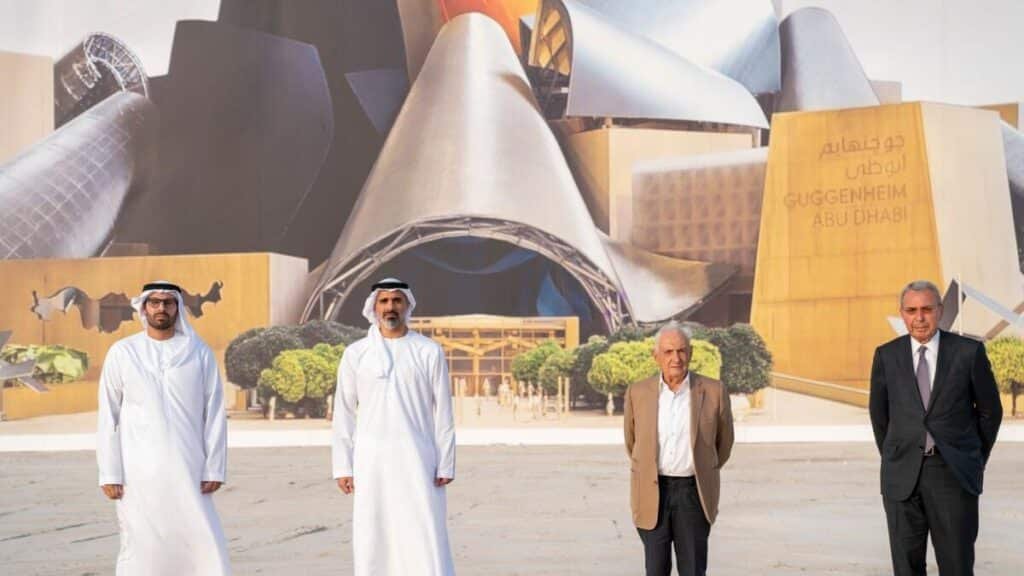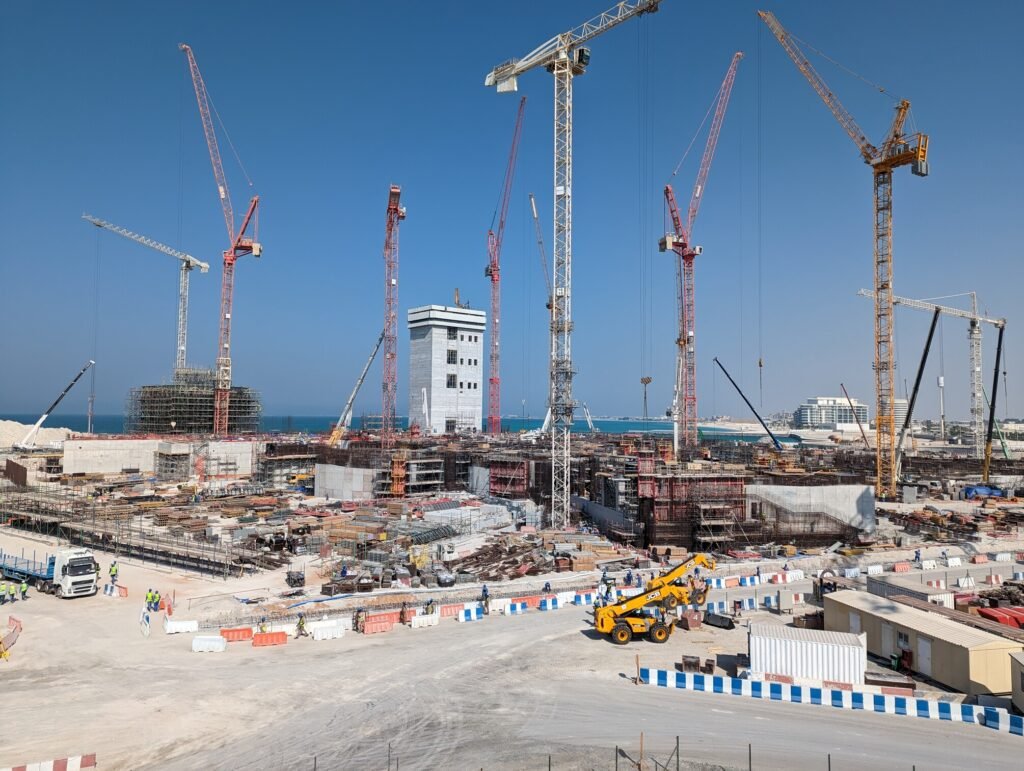Abu Dhabi’s Saadiyat Cultural District is set to become a global cultural hub with its completion scheduled for 2025. This ambitious project includes the Guggenheim Abu Dhabi, the Zayed National Museum, and the Natural History Museum Abu Dhabi. It aims to transform Saadiyat Island into a premier destination for art, culture, and education. This will complement the already operational Louvre Abu Dhabi. Abu Dhabi’s Saadiyat Cultural District ready in 2025.

A Vision for Cultural Excellence
The Saadiyat Cultural District is a testament to Abu Dhabi’s commitment to cultural development and international collaboration.
The project reflects the vision of the UAE’s leadership to position Abu Dhabi as a centre of cultural exchange and intellectual dialogue.
The district is designed to host a collection of world-class institutions that will offer visitors unique experiences. It will also provide insights into global and local cultures.

The Louvre Abu Dhabi: A Beacon of Culture
The Louvre Abu Dhabi, which opened its doors in November 2017, marked the beginning of Saadiyat Island’s transformation. This transformation turned the island into a cultural epicentre.
Designed by the renowned architect Jean Nouvel, the museum’s striking architecture features a dome that creates a ‘rain of light’ effect, symbolising the interconnection of cultures.
The stunning building houses an extensive collection of artworks and artefacts from around the world. It bridges the gap between Eastern and Western art. Louvre Abu Dhabi

Guggenheim Abu Dhabi: A Contemporary Art Haven
The Guggenheim Abu Dhabi is set to be the largest Guggenheim museum in the world. It is designed by the legendary architect Frank Gehry.
Scheduled for completion in 2025, the museum will feature modern and contemporary art from around the globe. The museum will have a particular focus on Middle Eastern artists.
The Guggenheim Abu Dhabi aims to foster a deeper understanding of art through its diverse exhibitions and educational programmes. Guggenheim Abu Dhabi
READ MORE: $37.8 Million Record-Breaking Property Sale

Zayed National Museum: Celebrating UAE’s Heritage
The Zayed National Museum, named in honour of the UAE’s founding father, Sheikh Zayed bin Sultan Al Nahyan, will celebrate the rich history and cultural heritage of the UAE.
Designed by Foster + Partners, the museum’s architecture is inspired by the falcon, a symbol of Emirati culture.
The Zayed National Museum will showcase the UAE’s journey from its early history to its rapid modernisation. It offers insights into the nation’s traditions and achievements. Zayed National Museum

Natural History Museum Abu Dhabi: A Journey Through Time
The Natural History Museum Abu Dhabi, another key component of the Saadiyat Cultural District, will provide an immersive journey through the natural world.
Featuring exhibits on the evolution of life, the wonders of the planet, and the universe, the museum aims to inspire curiosity and a deeper appreciation for the natural world.
The museum will also include a focus on the natural history of the Arabian Peninsula, highlighting the region’s unique biodiversity. Abu Dhabi Department of Culture and Tourism

Economic and Tourism Impact
The Saadiyat Cultural District will have a significant economic and tourism impact on Abu Dhabi.
By attracting international visitors, the district will boost the local economy and create numerous job opportunities.
The presence of world-renowned cultural institutions will enhance Abu Dhabi’s reputation as a global cultural destination. It will draw art enthusiasts, researchers, and tourists from around the world.

Educational and Social Benefits
In addition to its economic benefits, the Saadiyat Cultural District will provide substantial educational and social advantages.
The institutions within the district will offer educational programmes, workshops, and events that promote cultural understanding and intellectual growth.
These initiatives will not only benefit residents and visitors but also foster a greater appreciation for arts and culture within the local community.

Architectural Marvels
Each institution within the Saadiyat Cultural District is an architectural marvel in its own right.
From the futuristic design of the Guggenheim Abu Dhabi by Frank Gehry to the innovative structure of the Zayed National Museum by Foster + Partners, the district showcases the work of some of the world’s leading architects.
These buildings are not only functional spaces but also works of art that enhance the aesthetic appeal of Saadiyat Island.

Community Engagement and Global Collaboration
The development of the Saadiyat Cultural District represents a significant investment in community engagement and global collaboration.
By partnering with prestigious international institutions like the Louvre and the Guggenheim, Abu Dhabi is fostering cultural exchange and building bridges between different cultures.
This collaborative approach ensures that the district will be a dynamic and inclusive space. It reflects the diversity of human experience.

As the Saadiyat Cultural District moves closer to completion, it promises to be a landmark achievement in Abu Dhabi’s cultural landscape.
With its blend of world-class institutions and innovative architecture, the district will become a beacon of cultural excellence. It will also be a must-visit destination for art and culture enthusiasts worldwide.
Stay tuned to What’s Hot in UAE for more business news.


